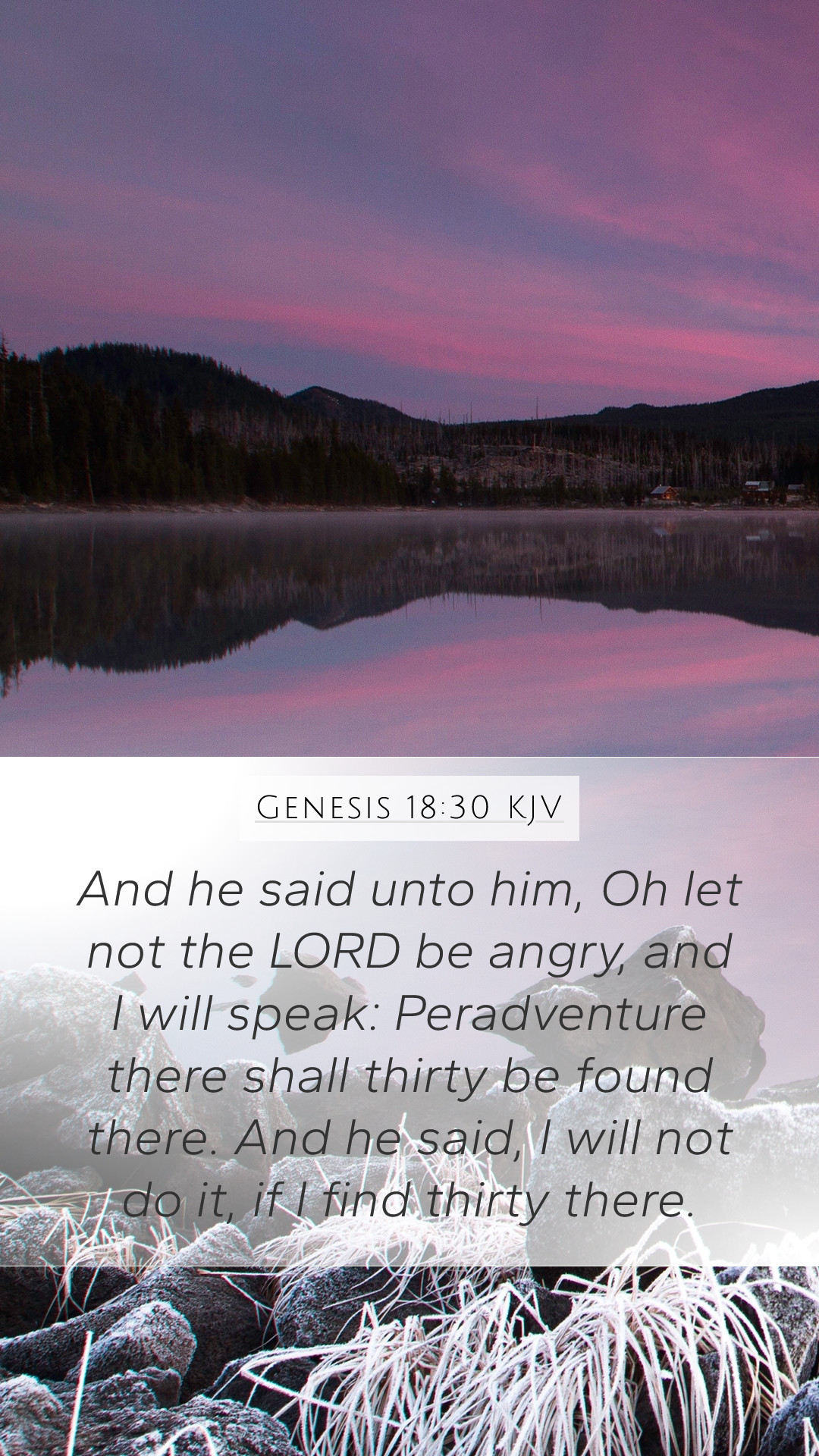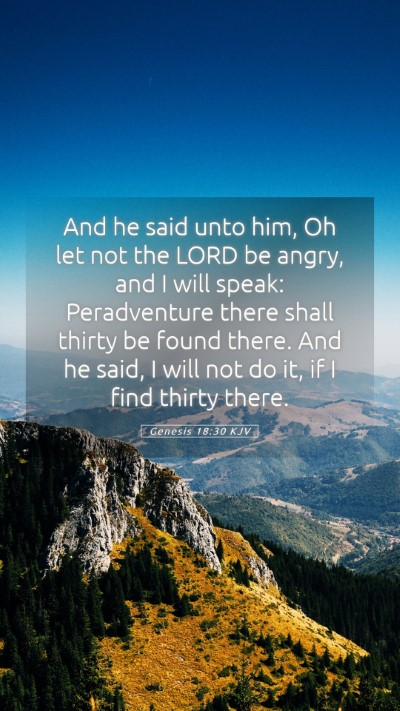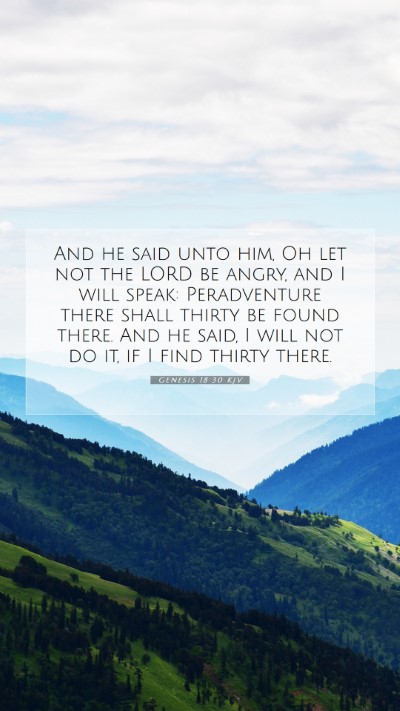Understanding Genesis 18:30
Genesis 18:30 features a dialogue between Abraham and God regarding the impending judgment on Sodom and Gomorrah. In this verse, Abraham asks God if He would spare the city if only thirty righteous people could be found there. This verse encapsulates themes of mercy, intercession, and the nature of divine judgment.
Contextual Overview
The context of this verse is critical for understanding its meaning. Abraham is portrayed as a mediator, illustrating the relationship between God and humankind. The surrounding narrative (Genesis 18:16-33) sets the stage for a poignant discussion about justice and mercy.
Bible Verse Meanings and Interpretations
- Intercessory Role of Abraham: Abraham's appeal to God signifies the importance of intercession in prayer. This showcases a model for believers on how to approach God with requests for mercy on behalf of others.
- Divine Justice and Mercy: God’s responses to Abraham reflect His nature — a balance of justice and mercy. While He is prepared to judge the wickedness of Sodom, He also listens to the pleas of the righteous.
- Specificity of Righteousness: The number mentioned (thirty) indicates the precision with which God assesses righteousness. This evokes a deeper understanding of God’s expectations for moral conduct within societies.
Commentary Insights
Matthew Henry: Henry emphasizes the significance of Abraham’s negotiation with God, seeing it as a demonstration of faith and concern for justice. Abraham’s boldness in prayer encourages believers to be confident in their requests to God.
Albert Barnes: Barnes explains the theological implications of this verse, focusing on God’s willingness to negotiate and the concept of collective responsibility. The idea that the righteous can influence God’s decisions offers profound reflections on community and morality.
Adam Clarke: Clarke provides a detailed view of the socio-political environment of Sodom and Gomorrah, noting that Abraham’s question also reflects his understanding of God’s nature. He provides a rich analysis of righteousness and its role in a community’s fate.
Application of Genesis 18:30
- Applying Prayer to Modern Life: Believers are encouraged to intercede for their communities, recognizing that prayer can affect divine action.
- Understanding Community Righteousness: The verse raises questions about collective morality and individual responsibilities within communities.
Related Bible Cross References
- Genesis 18:24-25 (The dialogue about the fate of the cities)
- Romans 8:26-27 (The role of the Spirit in intercession)
- Ezekiel 22:30 (God seeking a man who would stand in the gap)
Conclusion
Genesis 18:30 invites readers to contemplate the nature of divine justice, the urgency of righteous living, and the power of faithful intercession. By engaging with this scripture, individuals can deepen their Bible verse understanding, developing insights that not only inform but transform their personal faith journeys.
In sum, this verse not only addresses the historical context of Sodom's impending doom but also serves as a timeless reminder of God's desire for righteousness and the impact of individual prayers on broader outcomes.


